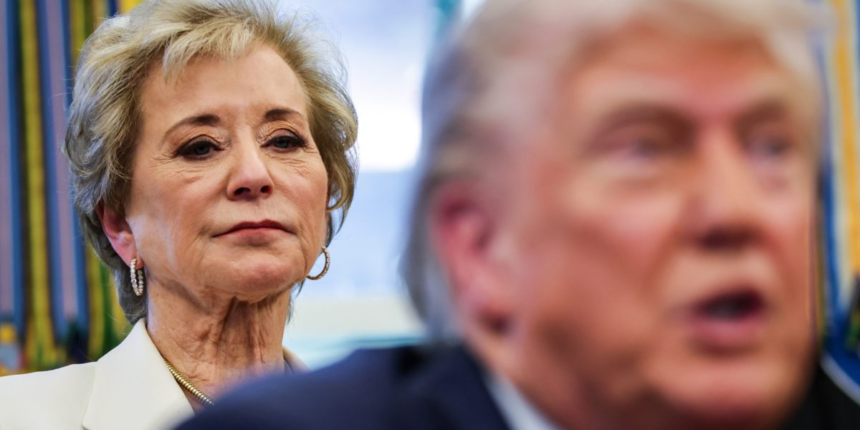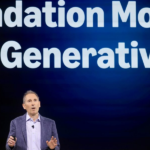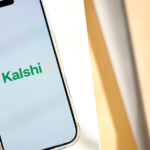Several advocates invited to weigh in on the draft proposal raised concerns it would give the department subjective authority to decide if an organization is engaged in anything illegal — a power that could be used to remove entire hospital systems or state governments from the program.
“That’s definitely an indicator for me that this is politically motivated and perhaps will be used as a tool for political punishment,” said Betsy Mayotte, president of the Institute of Student Loan Advisors and one of the advocates asked to review the policy as part of a rulemaking process.
Congress created the program in 2007 to encourage college graduates to work in the public sector. It promises to cancel all remaining debt after borrowers make 120 monthly loan payments while working for any level of government. Currently, nonprofits also are eligible if they focus on certain areas including public interest law, public health or education.
His plan has the potential to block huge numbers of student loan borrowers from cancellation. Those who work for an ineligible employer would no longer be able to make progress toward cancellation, effectively forcing them to find a new job or forgo loan relief.
Also considered illegal is “engaging in the chemical and surgical castration or mutilation of children in violation of Federal or State law.” It says that includes the use of hormone therapy or drugs that delay puberty. It defines children as those under 19.
It raises concerns that entire hospital systems could become ineligible if a single department provides certain care to transgender youth. Likewise, the federal government could potentially strip the benefit from entire cities that limit cooperation with federal immigration officials.
“This unfortunately may allow them to further chase the undesirable institutions, in their view,” she said.
When determining if an employer should be deemed ineligible, the department’s proposal would take into account court judgments and other legal findings. But it leaves room for at least some degree of subjectivity, giving the education secretary the authority to exclude organizations without proof of a conviction or settlement.
If used widely, the policy could worsen shortages of doctors and nurses, said Emeka Oguh, CEO of PeopleJoy, a company that helps employers provide student loan relief. A member of the panel, he encouraged the department to use the power surgically, going after individual hospital divisions rather than systems as a whole.
Oguh said department officials were unable to provide examples of organizations that might be found to be involved in illegal activities. When pressed for detail, officials said it would not be considered illegal for a hospital to treat an immigrant in the country illegally, he said. Less certain was how the department would handle teachers or schools teaching lessons considered DEI.
“There was a lot of ambiguity there,” Oguh said.
Some others raised concerns with a provision that requires employers to certify they do not engage in illegal activities. Failure to certify could also render an organization ineligible, raising the risk that paperwork problems could jeopardize cancellation for huge numbers of borrowers.
The department said it’s open to making changes based on the panel’s concerns. Ultimately, it’s free to shape the proposal as it pleases. The agency is now preparing a formal proposal that will undergo a public comment period before it’s finalized. It would be expected to take effect in July 2026.
Last week, the Education Department thanked the experts and said they “helped fulfill one of President Trump’s promises to ensure that PSLF does not subsidize organizations that are breaking the law.”









